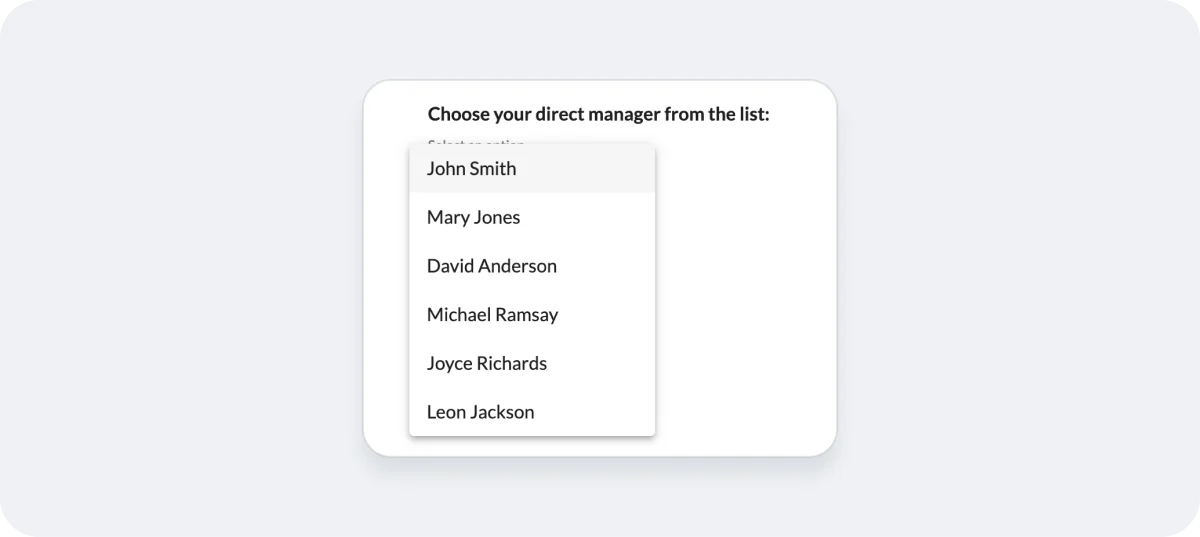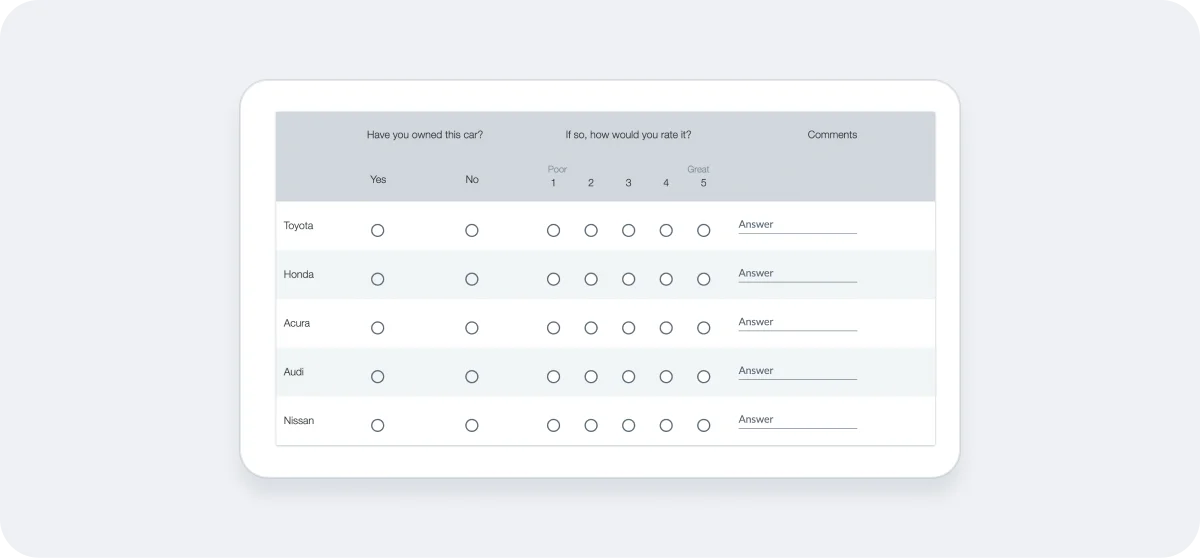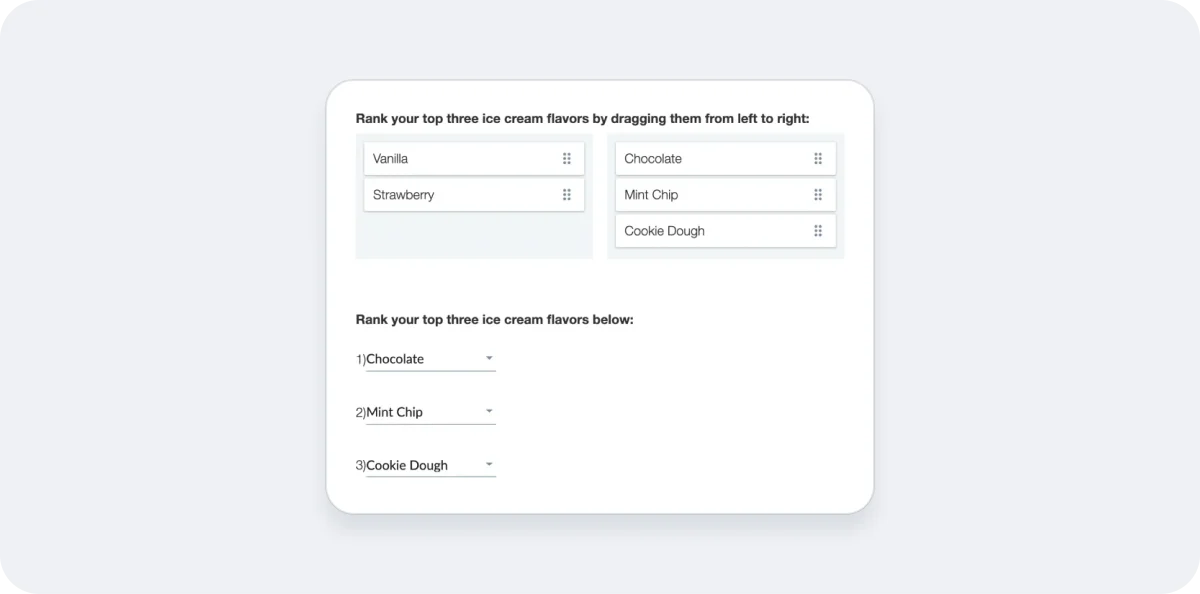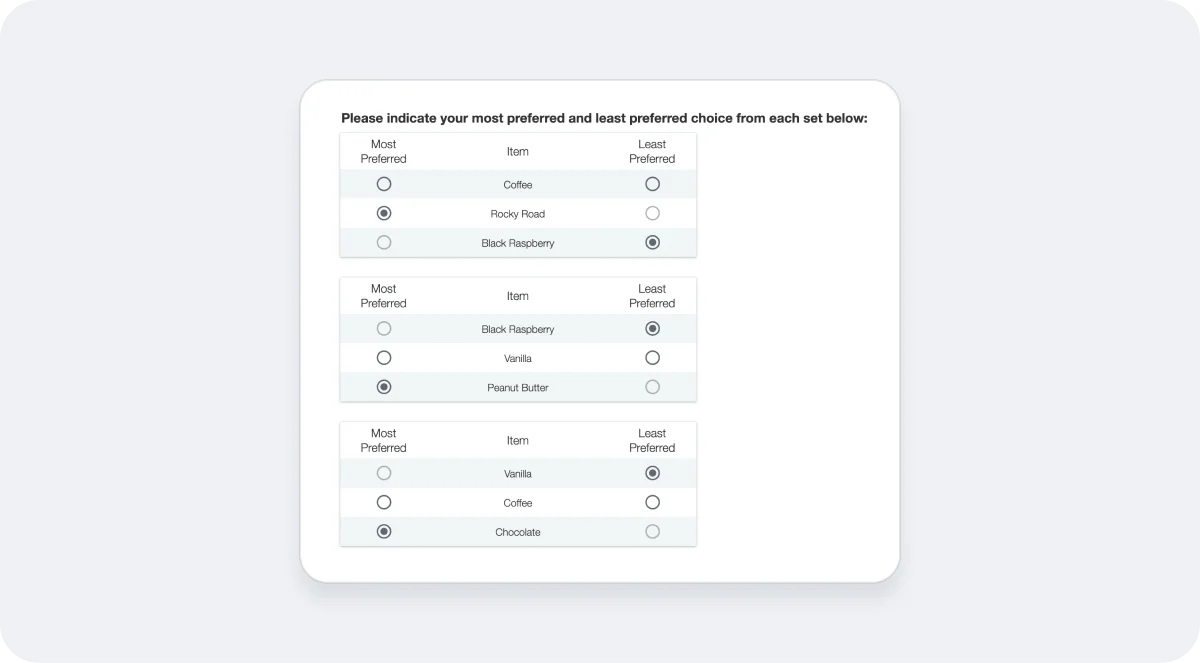Hello.
How can we help you?
Question Type Overview
This article embeds the question types directly from a Checkbox survey and onto this page so that you can interact with them.
Please note that these are just a few examples of how the questions can be formatted, and there are many customization options available.
Radio Buttons (single choice)
Use radio buttons when you’d like respondents to choose a single response from a list of available options. Include an “other” option so respondents can enter their own answer.
Checkboxes (multiple choice)
Use checkboxes when you’d like respondents to make multiple selections from a list of options. You can choose to allow a minimum and/or maximum number of selections, as well as include an “other” and/or “none of the above” options.
Dropdown Menu
Dropdown menus allow respondents to choose a single option from an expandable list, and are especially useful for mobile surveys or when you need to display a long list of answer choices in a smaller space.
Custom Source Dropdown
The Custom Source Dropdown allows you to dynamically pull a list of answer options from an external source into Checkbox. This allows you to update your Checkbox survey automatically using an API, rather than having to make manual changes each time your options change.

Multi-Line Free Text
Use multi-line free text questions to collect comments or free-form answers. You can style the text entry as plain text or use richer HTML formatting, and even set minimum and maximum character limits.
Single-Line Free Text
Use single-line text questions to collect short, free-text data like a respondent’s name or email. Use validation settings to ensure that information like email addresses, phone numbers, zip codes, etc. are in the proper format. You can even create your own auto-complete lists to cut down on data entry errors.
Rating (Likert) Scale
Create a custom rating or likert scale to allow your respondents to rate an item or experience. You can customize both the number values and text labels of your scale, as well as add an N/A option.

Custom Matrix Grid
Matrix questions allow you to combine questions of similar format into a single grid. This saves space, looks neater, and makes answering a large number of questions faster and easier for respondents. Checkbox’s matrix items are fully customizable, allowing you to create as many rows and columns as you need. Columns can be radio buttons, checkboxes, dropdowns, ratings scales, sliders, open text, and continuous sum.

Image Choice
The Image Choice question allows respondents to click to select one or more image options. You can make the question required and set the minimum/maximum number of images to select.

Slider – images, text, or numbers
Slider questions allow respondents to click a choice or slide a bar to choose a custom image, text or numerical value. Sliders are a great option for market research questions, pain or satisfaction scales, or numerical questions with many options.

Rank Order
Rank order questions allow respondents to drag and drop text or images into their order of preference. Options can be dragged and dropped in place or into a secondary “bucket”. Rank order questions can also be shown as dropdown or fill in the blank.

Star Rating
Star ratings allow your respondents to rate an item or experience visually by filling in a custom number of stars. You can also display the rating in a bar, line or box format.

Net Promoter Score
Net Promoter Score (NPS) is a standard market research tool that measures how likely a respondent is to recommend a product or service. Respondents choose a value from 0 to 10, and the NPS report places respondents in different categories based on the score and also calculates an overall NPS for the organization.

Max Diff
Max Diff is a standard market research question that measures preference/importance scores for multiple items (e.g. preference or importance of various brands, features, images). Answer choices are divided into randomized question sets and respondents are asked to choose their most and least favorite/important option from each set.

Signature Item
The Signature item allows respondents to record a digital signature or sign a survey electronically using their mouse on a PC or finger/stylus on a mobile device.

